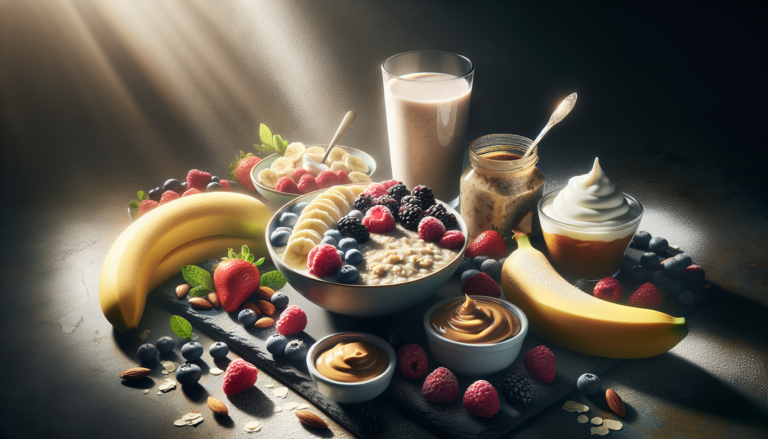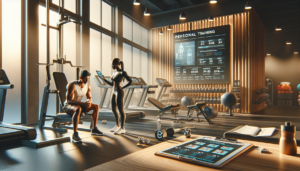Proper pre-workout nutrition is vital for optimizing your performance and recovery. What you eat before hitting the gym can significantly impact your energy levels, strength, and endurance during the workout. By fueling your body with the right nutrients at the right time, you can make the most of your training sessions and achieve your fitness goals more effectively.
Why Pre-Workout Nutrition Matters
The food you consume before exercising plays a crucial role in determining your performance and recovery. Eating the right nutrients prior to your workout can:
- Provide energy to power through intense training sessions
- Prevent fatigue and maintain focus
- Promote muscle growth and repair
- Reduce muscle damage and soreness post-workout
On the other hand, failing to eat properly or skipping pre-workout meals altogether can lead to suboptimal performance, increased fatigue, and even muscle breakdown. Prioritizing pre-workout nutrition is essential for anyone looking to maximize their results in the gym.
The Role of Carbohydrates
Carbohydrates are the body’s primary energy source during high-intensity exercises like weightlifting and HIIT. Consuming carbs before your workout helps:
- Replenish glycogen stores in your muscles and liver
- Provide quick energy to fuel your training
- Delay fatigue and maintain workout intensity
Good sources of pre-workout carbs include fruits, oats, rice, and sweet potatoes. Aim to consume easily digestible carbs 1-2 hours before your workout for sustained energy release.
The Importance of Protein
While often associated with post-workout meals, protein is also crucial for pre-workout nutrition. Consuming protein before exercise can:
- Stimulate muscle protein synthesis
- Reduce muscle damage and breakdown during training
- Promote recovery and muscle growth
Opt for lean protein sources like chicken, fish, egg whites, or a quality protein powder. Combining protein with carbs in your pre-workout meal can provide both immediate and sustained energy release.
Fats and Their Role in Exercise
Although fats are an important part of a balanced diet, they should be limited in pre-workout meals due to their slow digestion rate. However, consuming moderate amounts of healthy fats can be beneficial for longer, less intense workouts like yoga or walking.
Good sources of pre-workout fats include:
- Nuts and seeds
- Nut butters
- Avocados
- Olive oil
Keep fat intake low to moderate to avoid digestive discomfort during exercise.
Optimal Meal Timing Before Workouts
When you eat is just as important as what you eat when it comes to pre-workout nutrition. The timing of your meals can significantly impact your energy levels, performance, and recovery.
Eating 2-3 Hours Before Exercise
Consuming a balanced meal containing carbs, protein, and some healthy fats 2-3 hours before your workout allows sufficient time for digestion and provides sustained energy release. This is ideal for intense training sessions lasting over an hour.
Example pre-workout meals include:
- Grilled chicken breast with sweet potatoes and broccoli
- Oatmeal with protein powder and berries
- Brown rice with lean beef and mixed vegetables
Experiment with different food combinations to find what works best for you.
Quick Snacks Closer to Workout Time
If you have less than an hour before your workout, opt for easily digestible snacks that provide quick energy without causing stomach discomfort. Good options include:
- Bananas or other fruits
- Rice cakes with peanut butter
- Protein bars
- Greek yogurt with honey
Keep these snacks small to avoid feeling too full or sluggish during your workout.
Hydration Strategies for Optimal Performance
Proper hydration is crucial for exercise performance and overall health. Dehydration can lead to fatigue, cramping, and reduced workout intensity. On the other hand, being well-hydrated can improve your endurance, strength, and mental focus.
How Much Water to Drink
The amount of water you need depends on factors like your body size, sweat rate, and the intensity and duration of your workout. As a general guideline:
- Drink 17-20 ounces of water 2-3 hours before exercise
- Drink 8 ounces 20-30 minutes before starting your workout
- Drink 7-10 ounces every 10-20 minutes during exercise
Listen to your body and drink more if you feel thirsty or are exercising in hot conditions.
The Role of Sports Drinks
Sports drinks containing carbs and electrolytes can be beneficial for intense workouts lasting over an hour. They help:
- Replenish lost electrolytes through sweat
- Provide quick energy from simple sugars
- Promote fluid retention and prevent dehydration
However, for shorter or less intense workouts, water is usually sufficient.
Supplements to Consider Before the Gym
While a balanced diet should always be the foundation of your pre-workout nutrition, certain supplements can provide an extra boost to your performance and recovery.
Caffeine for Enhanced Performance
Caffeine is a popular pre-workout supplement due to its ability to:
- Increase energy and alertness
- Improve workout intensity
- Reduce perceived exertion and fatigue
You can get caffeine from coffee, pre-workout supplements, or energy drinks. Start with a low dose to assess your tolerance and avoid taking it too close to bedtime.
Creatine for Muscle Mass and Strength
Creatine is one of the most researched and effective supplements for increasing muscle mass and strength. It works by:
- Boosting energy production in your muscles
- Enhancing muscle recovery and growth
- Increasing water retention in muscle cells
Taking creatine before your workout can help you lift heavier weights and perform more reps.
BCAAs for Muscle Recovery
Branched-chain amino acids (BCAAs) are essential amino acids that can help:
- Reduce muscle damage and soreness
- Promote muscle protein synthesis
- Enhance recovery between workouts
Consuming BCAAs before and during your workout can minimize muscle breakdown and kickstart the recovery process.
Foods to Avoid Before the Gym
While focusing on what to eat before your workout, it’s equally important to know what foods to avoid. Certain foods can cause digestive issues, sap your energy, or make you feel sluggish during exercise.
High-Fiber Foods
Although fiber is an essential part of a healthy diet, consuming large amounts before your workout can lead to digestive discomfort. High-fiber foods like beans, cruciferous vegetables, and whole grains can cause:
- Bloating and gas
- Abdominal cramps
- Indigestion
- Diarrhea
Stick to easily digestible carbs and save the high-fiber meals for after your workout.
High-Fat Foods
Fatty foods like cheese, avocados, and nuts are nutritious but slow to digest. Eating large amounts before exercise can:
- Divert blood flow from your muscles to your digestive system
- Cause stomach discomfort and nausea
- Make you feel heavy and lethargic
Keep pre-workout fat intake low to moderate, especially if you have a sensitive stomach.
Tracking Your Pre-Workout Nutrition
Everyone responds differently to various pre-workout meals and snacks. What works for one person may not be ideal for another. That’s why tracking your nutrition and how it affects your workouts is crucial for optimizing your performance and results.
Keeping a Food Journal
Maintaining a food journal can help you identify which pre-workout meals make you feel energized and which ones leave you feeling sluggish. Record details like:
- What you ate and when
- Your energy levels during the workout
- Your performance (weights lifted, reps completed, etc.)
- Any digestive issues or discomfort
Over time, you’ll start to see patterns and can adjust your pre-workout nutrition accordingly.
Experimenting with Different Foods
Don’t be afraid to experiment with different pre-workout meal combinations to find what works best for you. Some people perform well on high-carb meals, while others prefer more protein or fat.
Consider factors like:
- The timing of your meal (2-3 hours before vs. 30-60 minutes before)
- The size of your meal (large vs. small)
- The macronutrient ratios (high-carb vs. high-protein vs. balanced)
Be patient and give your body time to adjust to new eating habits. With consistency and tracking, you’ll discover the pre-workout nutrition strategy that optimizes your performance and recovery.






